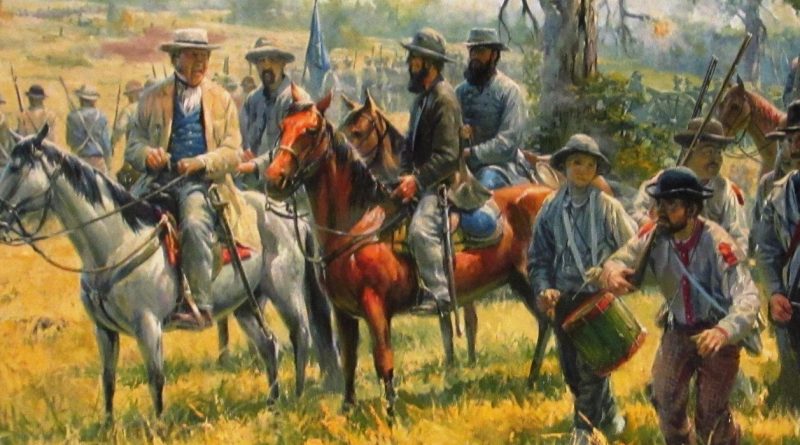August 10 in U.S. military history
1861: Confederate troops led by Brig. Gen. Benjamin McCulloch and Maj. Gen. Sterling Price’s Missouri State Guard clash with the Union’s Army of the West in present-day Springfield, Mo.. The Confederates defeat the Army of the West, killing its commander, Brig. Gen. Nathaniel Lyon. The Union retreats to Rolla, giving the Confederates control over southwest Missouri.
Five soldiers earned the Medal of Honor at Wilson’s Creek: Pvt. Nicholas Bouquet of the 1st Iowa Infantry, Cpl. Lorenzo D. Immell of the 2d U.S. Artillery, Maj. John M. Schofield of the 1st Missouri Infantry, 1st Lt. William M. Wherry of the 3rd U.S. Reserve Missouri Infantry, and 1st Lt. Clay H. Wood of the 11th U.S. Infantry.
1864: As the 37,000-man Army of the Shenandoah approaches, led by newly appointed General Phillip Sheridan, Confederate Lt. Gen. Jubal Early abandons his positions at Winchester, Va.. Sheridan will drive the Confederates from the the Shenandoah Valley and destroy the crops, rendering the strategic invasion route useless to the Southerners.
1918: Sgt. James I. Mestrovitch, an ethnic Serb who emigrated to the United States in 1913, spots his wounded company commander lying in the middle of a killzone 30 yards past friendly lines. Mestrovitch leaves the cover of a stone wall and braves the machinegun and shell fire, throwing the officer on his back and crawling to safety, where he administers first aid and saves the man’s life. For his actions, Sgt. Mestrovitch is awarded the Medal of Honor.
Mestrovitch will die from the Spanish flu just before the war ends, and a U.S. battleship will carry his remains to his hometown of Durasevici.
1944: Although pockets of Japanese resistance remain on the island, Guam is declared secure. The Marines and soldiers of the III Amphibious Corps take 8,000 casualties during the battle to retake Guam, killing over 18,000 of the Japanese garrison force.
1945: Following the atomic strikes on Hiroshima and Nagasaki, and as American warplanes continue to attack targets in Japan and Taiwan, the Emperor of Japan informs his War Council that he will “bear the unbearable” and agree to unconditional surrender. World War II will be over in a matter of days.
1967: President Lyndon B. Johnson authorizes the bombing of road and rail targets in the Hanoi-Haiphong area. Throughout Operation “Rolling Thunder”, Washington prevented the military from targeting facilities that would significantly benefit the war effort, such as attacking North Vietnamese airfields or mining harbors.
1972: Soldiers of the 21st Infantry Regiment – the first American troops to fight in Korea, and the last combat unit in Vietnam – departs for the United States. Over 40,000 advisers and support personnel remain in country, but the departure marks the end of dedicated combat personnel in Vietnam.
